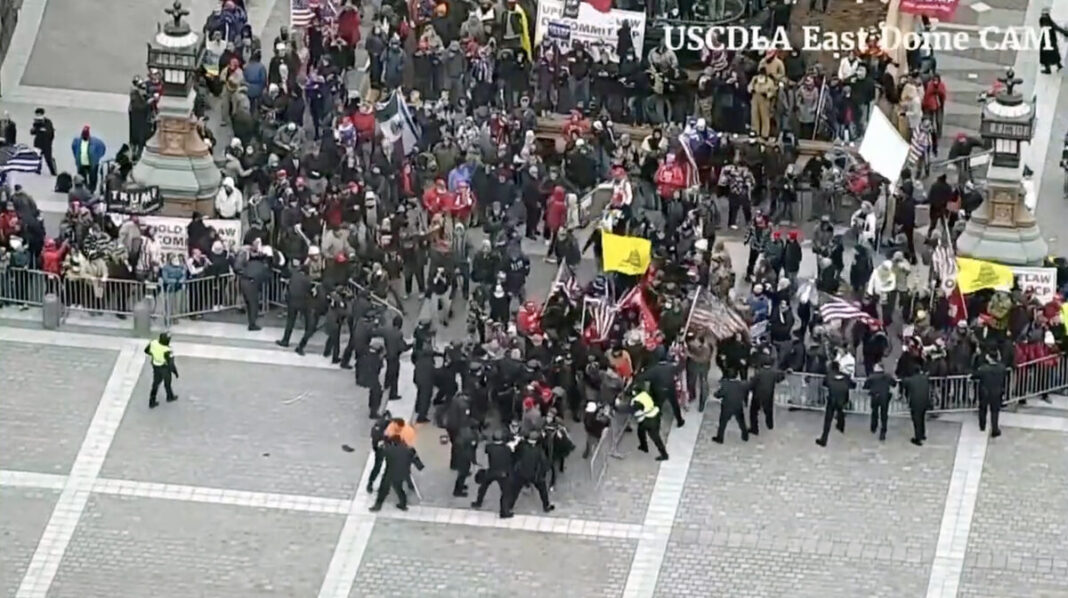“When needed, the government can intervene with the Twitter algorithm.”
On Friday, Twitter released the recommendation algorithm portion of its code by publishing it on GitHub, where developers post open source software data. Developer Steven Tey dug into the code and found that there is a mechanism through which the US government can “intervene” with the code.
“When needed, the government can intervene with the Twitter algorithm,” Tey wrote. “In fact, @TwitterEng (Twitter Engineering) even has a class for it – ‘GovernmentRequested.'”
7. When needed, the government can intervene with the Twitter algorithm.
— Steven Tey (@steventey) March 31, 2023
In fact, @TwitterEng even has a class for it – "GovernmentRequested"
Source → https://t.co/R1rpNHMDuO pic.twitter.com/YmavVJ8szi
Tey linked directly to the code on GitHub.
On March 17, Musk announced he was going to make the algorithm open source later in the month and said, “Our ‘algorithm’ is overly complex & not fully understood internally. People will discover many silly things , but we’ll patch issues as soon as they’re found!”
Our “algorithm” is overly complex & not fully understood internally. People will discover many silly things , but we’ll patch issues as soon as they’re found!
— Elon Musk (@elonmusk) March 17, 2023
We’re developing a simplified approach to serve more compelling tweets, but it’s still a work in progress. That’ll also…
Tey also found that a Twitter user’s “following-to-follower ratio matters and that page rankings get reduced for users who have “a low number of followers but a high number of followings.”
1. Your following-to-follower ratio matters.
— Steven Tey (@steventey) March 31, 2023
Twitter's "Tweepcred" PageRank algorithm reduces the page rank of users who have a low number of followers but a high number of followings.
Source ↓https://t.co/CRXVOhYdE9
The algorithm gives a boost to Twitter Blue subscribers. Twitter also categorizes four user groups, “power users,” “Democrat users,” “Republican users,” and “@elonmusk to “track and compare” the frequency of tweet impressions on other users.
3. Twitter identified 4 different user groups to track & compare how often their tweets are being impressed to users:
— Steven Tey (@steventey) March 31, 2023
◆ Power users
◆ Democrat users
◆ Republican users
◆ @elonmusk
Source → https://t.co/SvYxGuMpLp pic.twitter.com/BoUOYTrP5o
Tey identified factors that impact whether or not a user will make the “For You” recommendation and some factors that could have a negative impact on one’s “reputation score” such as getting blocked or muted.”
5. Some negative feedback loops that will reduce your "reputation score" on Twitter:
— Steven Tey (@steventey) March 31, 2023
◆ Getting blocked
◆ Getting muted
◆ Abuse reports
◆ Spam reports
◆ Unfollows (not as heavily penalized as the above 4 though)
Source → https://t.co/gwb4O0iYTy pic.twitter.com/wg4QVTS1H9
Presidential elections also impact the algorithm and how a candidate would appear for a user to follow.
9. So far, I've scoured both the Twitter Algorithm repos but I still haven't found anything about the following:
— Steven Tey (@steventey) April 1, 2023
◆ If a tweet containing a link will be ranked lower
◆ If bookmarking a tweet will boost its rankings
It looks like these are more myths than facts but I'll report…
Twitter announced their release of the code on Friday and in March of last year, directly before his $44 billion purchase of the platform, Elon Musk said that Twitter’s algorithm should be open source.
Most of the recommendation algorithm will be made open source today. The rest will follow.
— Elon Musk (@elonmusk) March 31, 2023
Acid test is that independent third parties should be able to determine, with reasonable accuracy, what will probably be shown to users.
No doubt, many embarrassing issues will be… https://t.co/41U4oexIev
Tey’s discovery of the “GovernmentRequested’ intervention option in the code follows revelations from the Twitter files, a series of reports detailing internal discussions at Twitter under its previous management.
The files detailed the company’s censorship efforts and collusion with government agencies towards those goals. One batch of the files by Michael Shellenberger showed that there were many former FBI agents on staff at Twitter while then-FBI Supervisory Special Agent Elvis Chan served as the lead operative in requesting Twitter censor many stories, including those around Hunter Biden’s “laptop from hell.”
Another batch of the files showed that federal agencies, including the FBI and Department of Homeland Security, partnered with contractors to “pressure Twitter to moderate content” and would use information portals to send constant information to Twitter on what accounts to restrict.
By Joshua Young
Read Original Article on ThePostMillennial.com







